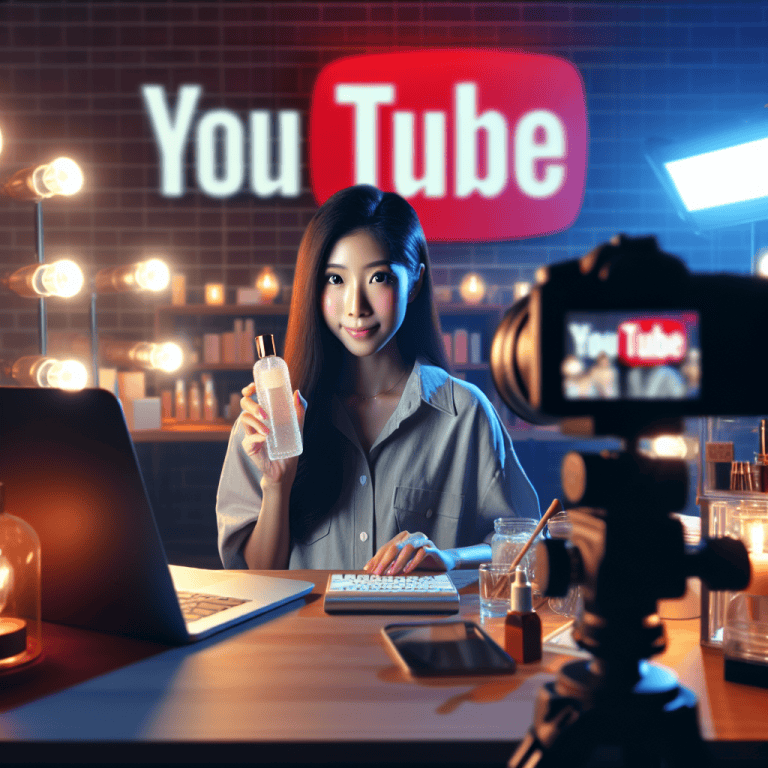Introduction To Influencer Marketing and Strategy
In a world where digital presence can make or break a brand, influencer marketing has emerged as a game-changer. But what exactly is influencer marketing, and why should it matter to small business owners, marketing professionals, and content creators alike? BST is here to help you with understanding influencer marketing, offer insights on its evolution, and provide a roadmap and strategy for leveraging it effectively.
What is Influencer Marketing?
Influencer marketing is a strategy that involves partnering with individuals who have a strong digital presence to promote products or services. Unlike traditional celebrities, influencers have cultivated a loyal following by sharing relatable content, personal stories, and authentic experiences.
For example, an Instagram influencer who specializes in fitness might partner with a new sportswear brand to showcase their latest line of yoga pants. Their followers, who trust their recommendations, are more likely to consider purchasing the product. Click this article if you would like to learn more on ‘How To Become An Influencer’
Influencer marketing isn’t just about paying someone to post a picture. It’s about creating authentic connections that resonate with the audience. This approach allows brands to reach niche markets in a more genuine way, increasing both engagement and conversions.
The Different Types of Influencers
Influencers come in various shapes and sizes, ranging from mega-influencers like celebrities with millions of followers to nano-influencers who have a smaller but highly engaged audience. Mega-influencers can offer massive reach but often lack the personal connection with their followers. On the other hand, micro- and nano-influencers usually have a more engaged, loyal audience, making them ideal for targeted campaigns. To read more on the 4 types of influencers, check out this blog post.
Why Influencer Marketing Works
The success of influencer marketing lies in its authenticity. Traditional ads are often ignored or blocked by users, but recommendations from trusted individuals cut through the noise. When an influencer promotes a product, it feels like a suggestion from a friend, making it more credible and effective.
History and Evolution of Influencer Marketing
The concept of influencer marketing isn’t new. It has its roots in celebrity endorsements, which have been around for decades. However, the rise of social media has democratized influence, allowing everyday people to build large, engaged audiences.
The Early Days
Back in the day, brands relied on famous personalities to endorse their products. Think Michael Jordan for Nike or Cindy Crawford for Pepsi. These endorsements were effective but came with a hefty price tag, making them accessible only to large corporations.
The Rise of Social Media
The advent of platforms like Instagram, YouTube, and TikTok changed the game. Suddenly, anyone with a smartphone and a unique voice could become an influencer. This shift made influencer marketing more accessible and cost-effective for small businesses and startups.
For instance, a small beauty brand could send free samples to beauty bloggers in exchange for a review. These bloggers, who may have a few thousand followers, could drive significant traffic and sales without the need for a massive marketing budget.
Current Trends
Influencer marketing continues to evolve. Today, brands are leveraging data analytics to identify the right influencers, measure campaign performance, and optimize strategies. The focus is shifting from mega-influencers to micro- and nano-influencers who offer higher engagement rates and more targeted reach.
Benefits of Influencer Marketing
Influencer marketing offers a plethora of benefits that can elevate your brand’s visibility and credibility. Here are some key advantages:
Increased Reach and Awareness
Partnering with influencers allows you to tap into their established audience, extending your brand’s reach. This is particularly beneficial for small businesses looking to gain exposure without spending a fortune on traditional advertising.
For example, a local coffee shop could collaborate with a lifestyle blogger to promote a new menu item. The blogger’s followers, many of whom might be local, are likely to visit the shop to try the new offering.
Enhanced Credibility and Trust
Influencers have built their reputation on authenticity. Their followers trust their opinions and recommendations. By associating with credible influencers, your brand gains instant trust and credibility.
Consider a tech startup launching a new gadget. Partnering with a tech-savvy influencer who reviews gadgets can lend credibility to the product, encouraging followers to check it out.
Higher Engagement Rates
Influencers often have higher engagement rates compared to brand accounts. Their followers are more likely to comment, like, and share their posts. This increased interaction can lead to higher conversion rates and brand loyalty.
For instance, a fashion brand could run a giveaway in collaboration with a fashion influencer. The influencer’s followers are more likely to engage with the post, participate in the giveaway, and ultimately become customers.
Challenges in Influencer Marketing
While influencer marketing offers numerous benefits, it’s not without its challenges. Here are some common hurdles you might face:
Finding the Right Influencer
Not all influencers are created equal. Finding the right match for your brand can be time-consuming and tricky. It’s essential to look beyond follower count and consider factors like engagement rate, audience demographics, and content alignment.
For example, a vegan food brand should partner with influencers who promote a plant-based lifestyle. Collaborating with a general food blogger might not resonate as well with the target audience.
Measuring ROI
One of the biggest challenges in influencer marketing is measuring return on investment (ROI). Unlike traditional advertising, where metrics are straightforward, influencer marketing requires tracking various KPIs like engagement, clicks, and conversions.
Using tools like Google Analytics and influencer marketing platforms can help track these metrics and provide valuable insights into campaign performance.
Navigating Compliance and Transparency
As influencer marketing grows, so do regulations around it. Ensuring compliance with advertising standards and maintaining transparency with your audience is crucial. Influencers must disclose sponsored content to comply with guidelines set by organizations like the FTC.
For instance, an influencer promoting a skincare product must use hashtags like #ad or #sponsored to disclose the partnership. Failure to do so can lead to legal issues and damage your brand’s reputation.
Crafting an Effective Influencer Marketing Strategy
Creating a successful influencer marketing strategy involves several steps. Here’s how to get started:
Define Your Goals
Before you begin, it’s essential to outline your objectives. Are you looking to increase brand awareness, drive sales, or boost engagement? Having clear goals will guide your strategy and help measure success.
For example, a fitness brand might aim to increase sales of a new product line. Their influencer marketing strategy would focus on partnering with fitness influencers to showcase the products in action.
Identify the Right Influencers
Finding the right influencers is crucial. Look for individuals whose audience aligns with your target market. Tools like BuzzSumo, HypeAuditor, and Upfluence can help identify suitable influencers based on various criteria.
Consider factors like follower demographics, engagement rate, and content style. A thorough vetting process ensures you partner with influencers who genuinely resonate with your brand values.
Develop a Collaboration Plan
Once you’ve identified potential influencers, develop a collaboration plan. Outline the campaign’s objectives, deliverables, timeline, and compensation. Clear communication ensures both parties are on the same page.
For instance, a travel agency partnering with a travel influencer might agree on a series of posts showcasing a specific destination. The plan would include details like post frequency, content themes, and hashtags to use.
Create Authentic Content
Authenticity is key to successful influencer marketing. Encourage influencers to create content that aligns with their unique voice and style. Authentic content resonates better with their audience and feels less like a hard sell.
For example, a beauty brand might ask influencers to create “get ready with me” videos using their products. This approach feels more natural and engaging than a traditional ad.
Monitor and Measure Performance
Tracking the performance of your influencer marketing campaigns is essential. Monitor metrics like engagement, clicks, and conversions to gauge success. Use these insights to optimize future campaigns and improve ROI.
Tools like Google Analytics, social media insights, and influencer marketing platforms provide valuable data to measure campaign effectiveness.
Conclusion
Influencer marketing is a powerful tool for small business owners, marketing professionals, and content creators. Its ability to create authentic connections, extend brand reach, and drive engagement makes it a valuable addition to any marketing strategy.
By understanding the history, benefits, and challenges of influencer marketing, you can craft effective campaigns that resonate with your target audience. Remember to define clear goals, find the right influencers, and create authentic content to maximize your success.
Ready to take your influencer marketing to the next level? Explore our resources and start building your Influencer Marketing Strategy today!







